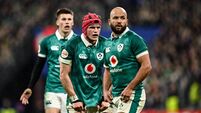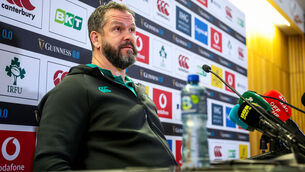No hope of White supremacy
Her name was Claudia and she was to be our guide.
Immediately, the decision to forego the pleasure of a lie-in at the hotel in favour of a tour around South Africa’s parliament seemed to have been justified. “Howya Claudia,” we chorused cheekily, imbued with that particular type of confidence that comes from wearing a blazer abroad. Claudia smiled thinly, her heart clearly not in it.















